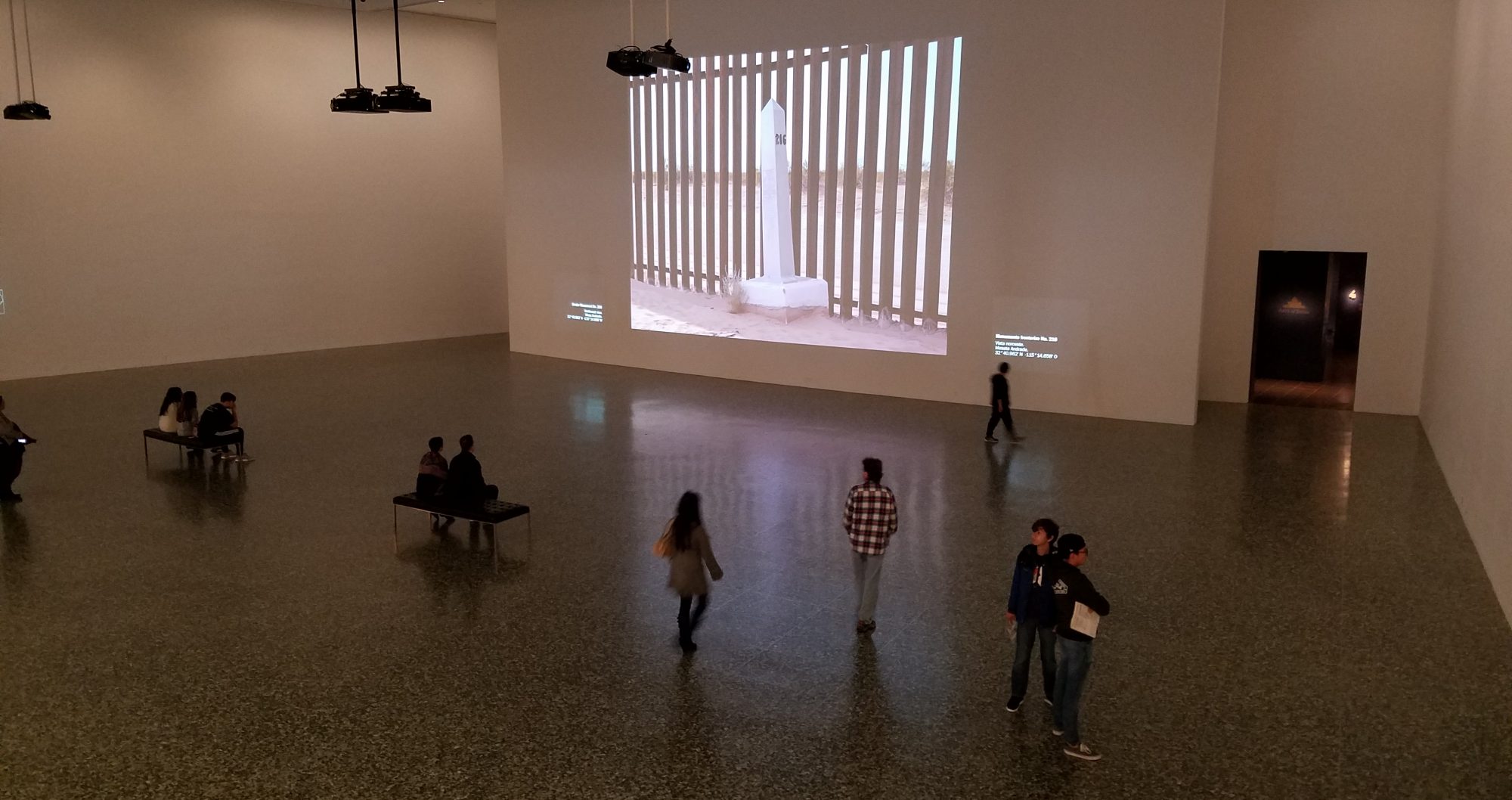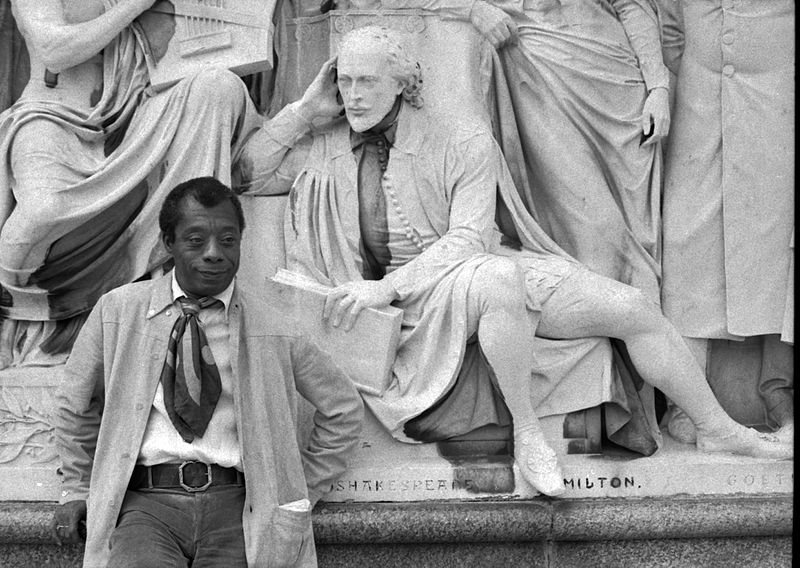James Baldwin, surprisingly, has just recently entered my life. Baldwin was many things – an essayist, playwright, debater, scholar, artist, and activist. In 1987, his passing went unannounced in my life. His almost 40 years of writings and opinions were something unfamiliar to me. I’m sure in some first- or second-year college American literature course I came across one of his essays (at the date of his death, I was just about to start my second semester of my freshman year), but I did not take note, nor was educated on how much this celebrated African American man influenced our knowledge on the experiences of people of color in the United States.
In 1987, I was just starting my own journey in understanding my identity as a young Mexican American (at that time, I didn’t embrace “Chicano” yet) man. Naive and immature, I mainly saw my initial college years as ones to enjoy all the debauchery that college is known for – parties, clubbing, drinking, and meeting new friends. These initial years also brought overt experiences of racism and discrimination. While these experiences have always been a part of my life, what made these acts different was my idea that it would all end once I entered a university. I held an idyllic image of what college was supposed to be like – a setting where you studied under large trees with other students laughing and learning together. Instead, I found an environment that did not quite understand how to deal with the diversity of the people who entered its space each year. My university was also located in what was then considered a semi-rural area, where bastions of white supremacy and communities with a rich history of racism surrounded the campus.
This setting provided the background in understanding in my understanding what it means to be Chicano. In the hallways where knowledge was passed to students, myself and my friends who looked like me also received messages of “go back to Mexico”, “hey beaner”, “English only spoken here”, and “spic”. Friendly parties that went into the late evenings were broken up by the police once the house party started playing Tejano music (my friends and I always had a theory that rap and pop music blaring loud were fine to the neighbors, but when Spanish music was played, time to call the cops). Student organizations on campus were notable for their lack of diversity, especially in student leadership. Programming for cultural activities was often questioned more often in the guise of “will the attendance be worthwhile” or “there will be limited interest on that topic.” After three years of constant, sometimes daily, reminders of being different on a predominantly white campus, I made it a priority to learn more about myself, as someone who was quickly learning what it means to be Chicano in the United States.
The previous paragraphs set up my eventual plan to learn about my ethnic identity and what possible directions it might have taken if James Baldwin was introduced to me at that time. As part of my taking opportunity of life living under a pandemic, I reserved my Friday afternoons to engage in reflection to understand how we as a society ended up at this moment and what I can learn from it. Using film, music, and writing as my references, I hope to come out of this worldwide health crisis with a clearer lens and a hopeful outlook. My colleague and scholar-brother, Dr. Paul Eaton, has always encouraged me to look into Baldwin’s writings. While I ventured into viewing of the documentary, “I Am Not Your Negro”, was initially to understand my friend’s love of Baldwin’s work, I left my viewing of this film really connecting to how Baldwin’s essays connected to my own ethnic identity development. In addition, I loved how the film used archival footage of Hollywood movies to highlight key ideas found in Baldwin’s essays. I left my viewing with a full page of notes and I plan to further my education of James Baldwin.
One of the most powerful sections of the documentary involved describing Baldwin’s own educational journey, starting with his elementary schooling. If I recall, this section of the film fell under the title “Heroes.” In my elementary experience, I was one of few Mexican American children at my school. Reflecting back, I believe I was one of maybe two or three Mexican American boys. My childhood is filled with very vivid accounts of how I was different in the school. Through my young eyes, I did not see these experiences as anything but unfamiliarity with my culture. As adult, I see these many experiences as reflections of how U.S. society has always treated minoritized communities, especially in schools. One of the most powerful quotes I made note of in my viewing was Baldwin thoughts on the educational experience of many young students of color during pre-Civil Rights: “segregation starts once you go through the schoolhouse door.” When I heard this, I immediately visualized my own self going through various school doors where this occurred. Once I entered spaces of learning where I wasn’t visible, the segregation immediately occurred. As an elementary learner, I looked different than my classmates. As a junior high student, I was denied my love of reading due to my slurred speech. As a high school student, I was subjugated to the silly social group divisions – the “preps”, the jocks, the stoners, and the band nerds – most of these based on family income status. As a college student, it was all of these combined. Each educational setting I have entered has been one where I am reminded that I have to do extra just to succeed.
What if James Baldwin was part of my college development in 1987? Using the documentary as a frame of reference, I believe he would have provided validation on how I felt as a person of color in U.S. society at that time. My constant feeling of feeling like a “stranger” whenever I went to school – a place I deeply loved – matched Baldwin’s thoughts writing as a Black man living in a deeply divided United States. His keen observations of how we see each other (especially through Hollywood films) and ability to write about his experiences through powerful analogies (for example, describing Sunday services as “the most segregated hour in America”) would have been powerful guideposts to direct me in further understand my own understanding of who I was as a college student.
Jump forward to 2020, where I am now about to embark on yet another educational journey. This past week, I found out that I was approved for promotion to Associate Professor with tenure (pending Board of Regents approval, which should be given). I wrote in a social media post that this has been a journey over 40 years in the making. A journey that started at Midway Park Elementary in Euless,Texas. Like Baldwin,I wrote that my heroes were my elementary school teachers. My love of teaching was influenced by observing and receiving the care of those teachers who noticed and took in a shy quiet kid who loved reading and learning. I still remember the care and empathy shown by Mrs. Purvis, Mrs. Wallace, Mrs. Busey, Mrs. Copeland, and my favorite, my sixth-grade teacher, Ms. Nixon, who at one time did help me figure out several incidents of racism by my classmates, who were just beginning to understand what it means to have power to oppress others. My new role as a tenured professor is something I do not take lightly. I’m entering yet another space where others who look like me – a Latino male – are few. In 2018, there were only 3-4% Latino men as full-time college faculty (NCES, 2018).
James Baldwin entering my life could not have come at a better time. This new phase needs me to further understand what it means to be a Latino male who now can use his tenure to advocate and support the Latinx community. I am finding out that James Baldwin was a prolific scholar, often providing talks and presentations at colleges and universities worldwide. He was a writer who could use his skill to not only pull the curtain to show the ugly side of U.S. race relations, but also use the power of the pen to uplift communities to believe in themselves and to love through activism. Baldwin was a confident individual, something that I know I need further improvement. In the documentary, there is clip where he engages in passionate dialogue with a white Ivy League scholar. What impressed me in this clip was Baldwin’s ability to engage his passion to not win or downplay his colleague, but to raise even more questions on why we need to understand the state of our nation. His confidence left an impression on me. I thought if I could do the same with my own faculty colleagues.
After viewing this powerful documentary using James Baldwin’s words, I came to the conclusion that I need to read more of his works not only to learn about his ideas, but to learn to love myself even more. I am entering a stage of my life where I feel the most confident I have ever felt. I have achieved an accomplishment that few have reached. It was one of the most difficult and surreal journeys in my life, but I did it. What comes next? That is the question I am looking forward to exploring. I know that it will still be challenging, but in the process, I have further developed my ethnic identity, my scholar identity, and my understanding on how to further use this role to support my Latinx community.
James Baldwin, how can you help me? What words have you written that I can learn from today? What thoughts can you pass down to another scholar of color? Have you ever spoken to other young men of color who were reaching the highest levels of education? And if you did, what advice did you share with them? How can I improve my confidence, much like you shown when asked to explain the most difficult of society’s problems? How can I use this knowledge in the classroom and in the role of tenured faculty?
Is there a Latinx writer-scholar equivalent to you?
I look forward to my continued education on the works of James Baldwin. I feel that it will help me in my new identities recently earned and continue to help me understand myself in these interesting and continually evolving times. It’s time to go home and pay my dues.
Onward.

